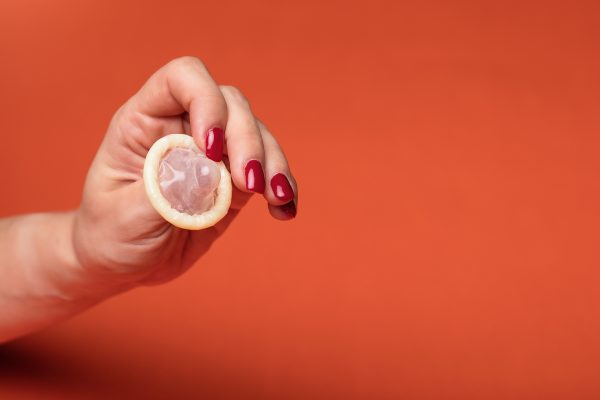Maintaining proper vaginal hygiene is a crucial aspect of a woman’s overall health and well-being. Yet, for many, discussing this topic can be uncomfortable or even taboo. However, it’s important to break down these barriers and openly address the subject to ensure women have the knowledge and tools to keep their vaginal area fresh and clean. In this article, we’ll explore various methods and practices for maintaining a healthy vaginal area, debunk common misconceptions, and provide useful tips and tricks. So, let’s dive in and keep your kitty feeling fresh!
Understanding the Anatomy and Self-Cleaning Mechanisms
Before we delve into the tips and tricks, it’s essential to understand the anatomy of the vagina. The vagina is a muscular canal that connects the uterus to the external opening. It has a unique self-cleaning mechanism that helps maintain a balanced pH level and healthy bacterial flora.
The vagina produces natural secretions that serve as a protective barrier and keep harmful bacteria at bay. These secretions may vary in consistency and quantity throughout the menstrual cycle. It’s important to remember that vaginal discharge is normal and plays a vital role in keeping the vagina clean.
Practical Tips and Tricks for Vaginal Hygiene
- Appropriate Cleansing Techniques: When it comes to cleaning the vaginal area, less is more. Avoid using harsh soaps or douches, as they can disrupt the natural pH balance and cause irritation. Instead, opt for mild, fragrance-free soaps or cleansers specifically formulated for the delicate intimate area. Gently wash the external genital area using your hand or a soft cloth, ensuring thorough but gentle cleansing.
- Suitable Products: Choosing the right products for your vaginal hygiene routine is essential. Look for products that are free from harsh chemicals, dyes, and fragrances. Organic and natural options can be gentle on the skin and maintain the natural balance of the vaginal area. It’s also important to note that feminine wipes or intimate deodorants should be used sparingly, if at all, as they can disrupt the natural ecosystem.
- Recommended Frequency: While it’s important to keep the vaginal area clean, excessive washing can be just as harmful as inadequate hygiene. Aim to wash the external genital area once or twice a day, or as needed, to maintain cleanliness without causing dryness or irritation. Remember, the goal is to maintain a balanced environment, not strip away the natural protective barrier.
- Avoiding Irritants: Certain substances can irritate the delicate skin of the vaginal area. Avoid using scented soaps, bubble baths, and perfumed products in the genital area, as they can disrupt the natural pH balance and lead to irritation. Additionally, be cautious with laundry detergents and fabric softeners that may contain harsh chemicals or fragrances. Opt for gentle, fragrance-free options to minimize the risk of irritation.
- Staying Dry: Moisture in the vaginal area can create an environment for bacterial growth. After washing or bathing, pat the area dry with a clean towel instead of rubbing, as excessive friction can cause irritation. It’s also advisable to wear breathable, cotton underwear that allows air circulation and absorbs moisture effectively.
- Using Protection During Menstruation: During menstruation, maintaining proper hygiene is crucial. Change tampons, pads, or menstrual cups frequently according to the manufacturer’s instructions. This helps prevent bacterial overgrowth and reduces the risk of infections. Avoid using scented sanitary products, as they can cause irritation. Remember to wash your hands before and after handling menstrual products to maintain cleanliness.
- Managing Menopause-Related Changes: Menopause can bring about changes in vaginal health due to decreased estrogen levels. If you experience symptoms such as vaginal dryness or discomfort during intercourse, consider using water-based lubricants to enhance comfort. It’s also beneficial to discuss these changes with a healthcare professional, as they can provide appropriate guidance and recommend suitable treatments.
Lifestyle Factors Affecting Vaginal Health
Several lifestyle factors can impact vaginal health. Here are some tips to consider:
- Diet: A healthy diet can promote overall well-being, including vaginal health. A balanced diet rich in fruits, vegetables, whole grains, and probiotics can support the body’s immune system and maintain a healthy bacterial balance in the vagina. Stay hydrated by drinking plenty of water, as this helps flush out toxins and promotes healthy vaginal secretions.
- Clothing Choices: Wearing breathable cotton underwear can help prevent excessive moisture and reduce the risk of bacterial growth. Avoid tight-fitting clothing and opt for loose-fitting garments to allow air circulation and minimize friction. Additionally, changing out of wet swimsuits or sweaty workout clothes promptly can prevent moisture buildup and discomfort.
- Sexual Practices: Engaging in safe and consensual sexual activities is crucial for both physical and emotional well-being. Remember to practice safe sex by using condoms and/or other barrier methods to reduce the risk of sexually transmitted infections (STIs). After intercourse, it’s advisable to urinate and gently clean the genital area to minimize the risk of urinary tract infections.
Addressing Common Concerns and Issues
a. Vaginal Odour: It’s normal for the vagina to have a slight odor, but if you notice a strong or unpleasant smell, it may indicate an underlying issue. Poor hygiene, infections, or certain foods can contribute to vaginal odor. If you’re concerned about persistent or unusual odors, it’s best to consult a healthcare professional. They can identify any underlying causes and provide appropriate treatment.
b. Vaginal Discharge: Vaginal discharge varies in consistency and color throughout the menstrual cycle. It can be clear, white, or slightly yellowish and may increase during ovulation or pregnancy. However, changes in discharge color, texture, or smell may indicate an infection or other issues. If you experience abnormal discharge accompanied by itching, irritation, or discomfort, it’s advisable to seek medical advice.
c. Vaginal Irritation: Vaginal irritation can occur due to various factors, including allergic reactions, infections, or hormonal imbalances. To alleviate irritation, avoid using scented products, and wear breathable cotton underwear. If the irritation persists or worsens, consult a healthcare professional for an accurate diagnosis and suitable treatment.
Importance of Regular Check-Ups and Professional Care
While maintaining good personal hygiene is crucial, it’s equally important to schedule regular check-ups with healthcare professionals or gynecologists. These healthcare providers specialize in women’s reproductive health and can offer valuable guidance and personalized care. Regular screenings, such as Pap smears and pelvic exams, can detect potential issues early on and ensure timely intervention and treatment.
Remember, everyone’s body is unique, and what works for one person may not work for another. It’s essential to prioritize your comfort, listen to your body, and seek professional advice when necessary.
External References:
- The American College of Obstetricians and Gynecologists (ACOG): Maintaining Vaginal Health
- Mayo Clinic: Vaginal Health: How to Keep Your Vagina Healthy
- National Health Service (NHS): Vagina Care


